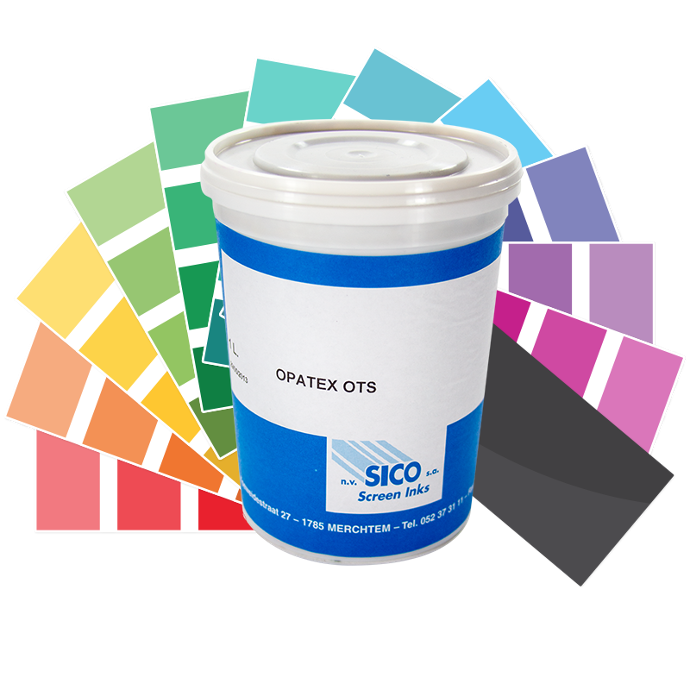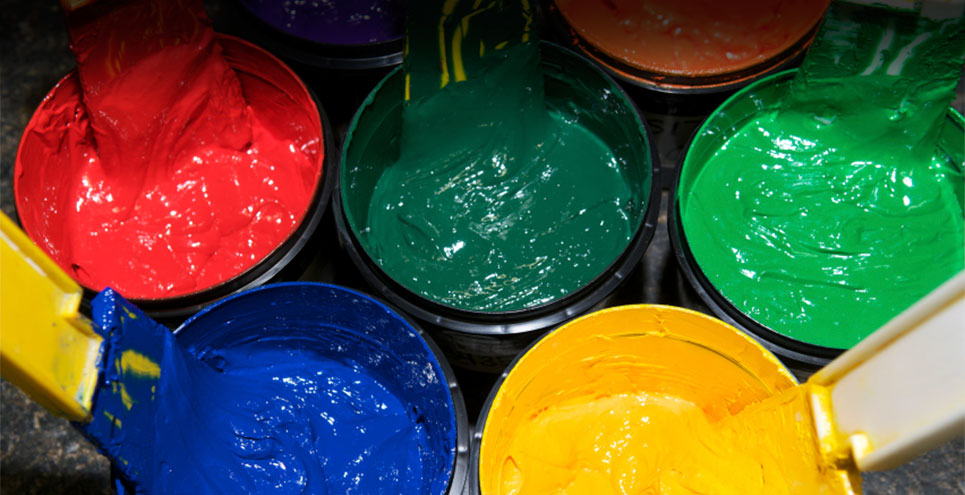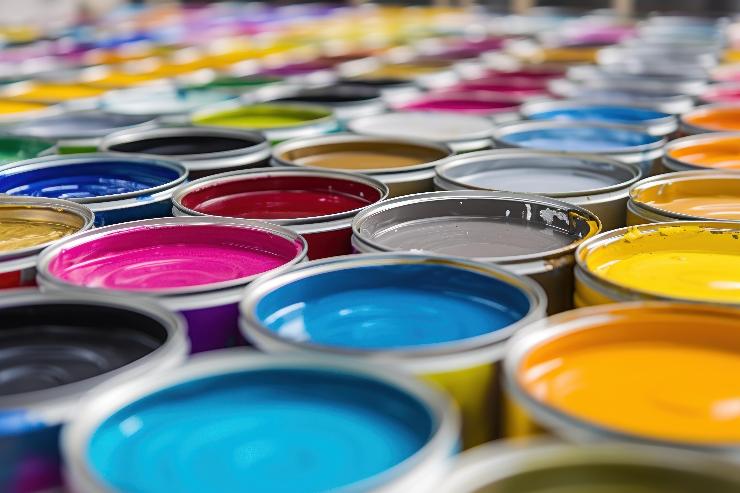Screen Printing Inks for Textiles
Screen printing is a versatile and popular method for applying designs to textiles. The choice of ink plays a crucial role in determining the quality, durability, and environmental impact of the final product. We supply three main types of screen printing inks for textiles:
- Plastisol ink
- Water-based ink
- Solvent ink

Plastisol Screen Printing Ink
Plastisol inks are widely used in textile screen printing, known for their versatility and durability. Composed primarily of PVC resin particles suspended in plasticizers, these inks remain stable at room temperature and only cure when exposed to heat, typically around 160°C.
They excel in producing vibrant, opaque prints on dark fabrics and are favoured for their long shelf life and consistent results in high-volume production.
While plastisol inks offer excellent colour saturation and wash resistance, they have drawbacks including a thicker hand feel on fabrics and environmental concerns due to their PVC content.
Despite these challenges, plastisol remains a go-to choice for many printers, especially for applications requiring bold, long-lasting designs on t-shirts, sportswear, and promotional items.

Water-based Screen Printing Ink
Water-based screen printing inks for textiles are composed of pigments or dyes suspended in water, along with binders and additives. These inks are known for their soft hand feel and breathability, making them ideal for fashion-forward and eco-conscious apparel. They excel in producing detailed designs and halftones, particularly on light-coloured fabrics.
Water-based inks are generally more environmentally friendly than plastisol alternatives, with lower VOC emissions and easier cleanup. Their ability to create soft, matte finishes and their eco-friendly profile have made water-based inks increasingly popular in the textile printing industry, especially for high-end fashion and sustainable clothing lines.
Solvent Screen Printing Ink
Solvent-based screen printing inks for textiles are composed of pigments or dyes dissolved in organic solvents, along with resins for adhesion. These inks are prized for their quick-drying properties and excellent adhesion to synthetic fabrics and non-porous materials, making them ideal for outdoor applications such as banners, flags, and certain types of sportswear. Solvent inks offer superior weather resistance and durability compared to water-based alternatives, maintaining vibrant colours even under harsh conditions. However, they come with significant environmental and health concerns due to their high volatile organic compound (VOC) emissions, requiring proper ventilation and safety measures during the printing process. Despite these drawbacks, solvent inks remain crucial in industrial and specialty textile printing where performance under extreme conditions is paramount

